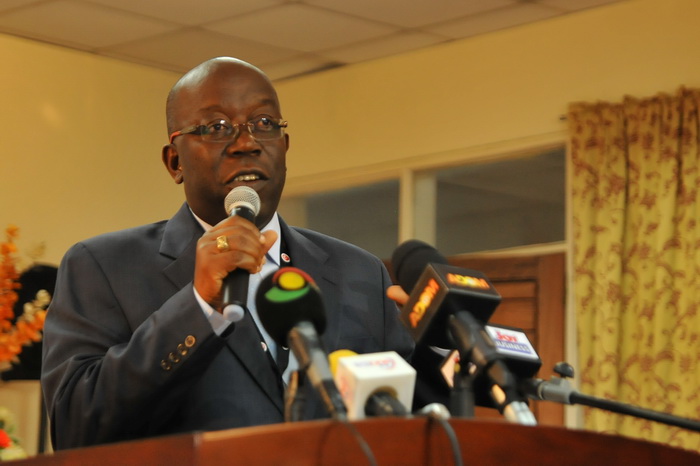The Social Security and National Insurance Trust (SSNIT) has kicked against the push by a group known as the FORUM to change the computation of the Past Credit from what is stipulated in the law, saying the move will collapse the scheme by 2022 if implemented.
The Past Credit simply is pensioners’ money that remained with SSNIT after the coming into force of ACT 766 – which required the scheme to transfer 4 percent of pensioners’ funds to fund-managers (second-tier). What this means is that the 17.5 percent of workers’ salary initially paid to SSNIT was slashed to 13.5 percent, with the remaining 4 percent paid to fund-managers.
However, workers who had already paid the 17.5 percent to SSNIT before Act 766 came into force on December 31, 2009 could not have the 4 percent of accumulated salaries transferred to fund managers, but still remained with SSNIT. Subsequently, SSNIT proposed that the Past Credit up to December 2009 should be computed using 50 percent of the annual prevailing Treasury bill rate, and the interest from January 2010 computed using 50 percent of the 91-day Treasury bill rate compounded quarterly.
The NPRA, however, accepted that SSNIT computes the Past Credit using 50 percent of the annual prevailing Treasury bill rate up to 31 December 2009, but proposed an increment to 75 percent of the prevailing 91-day Treasury bill rate, effective January 2010. And in 2017, the FORUM group again raised concerns about the rate and demanded it be upgraded to 100 percent, taking retrospective effect from January 2010 – to which SSNIT, NPRA, and Ministry of Labour agreed. This, SSNIT said, increased its credit liability to GH¢2.9billion from a previous GH¢1.3billion.
That notwithstanding, the FORUM came back again some few weeks ago – stating that the 100 percent computation should rather date back to when workers joined the scheme and started making contributions, instead of taking effect from 2010. What this further means is that workers who joined the scheme even as far back as the 80s to the end of 2009 will have their Past Credit computed with the 100 percent (instead of 50 percent) 91-day Treasury bill rate.
It is this demand that SSNIT is saying is unlawful and will run it down, and further plunge it into serious financial crisis mode from 2022 – as its credit liability will increase to GH¢5.8billion if it yields to such a demand.
SSNIT further argues that the request also failed to apply provisions in the law, which state clearly that actuarial justifications should be made before any changes to the method of computation is made in order to ascertain how sustainable the scheme will be after implementing such method.
The Director General of SSNIT, Dr. John Ofori-Tenkorang, during a press briefing in Accra debunked assertions that the scheme is short-changing contributors and assured that it will always put the interests of members first.



